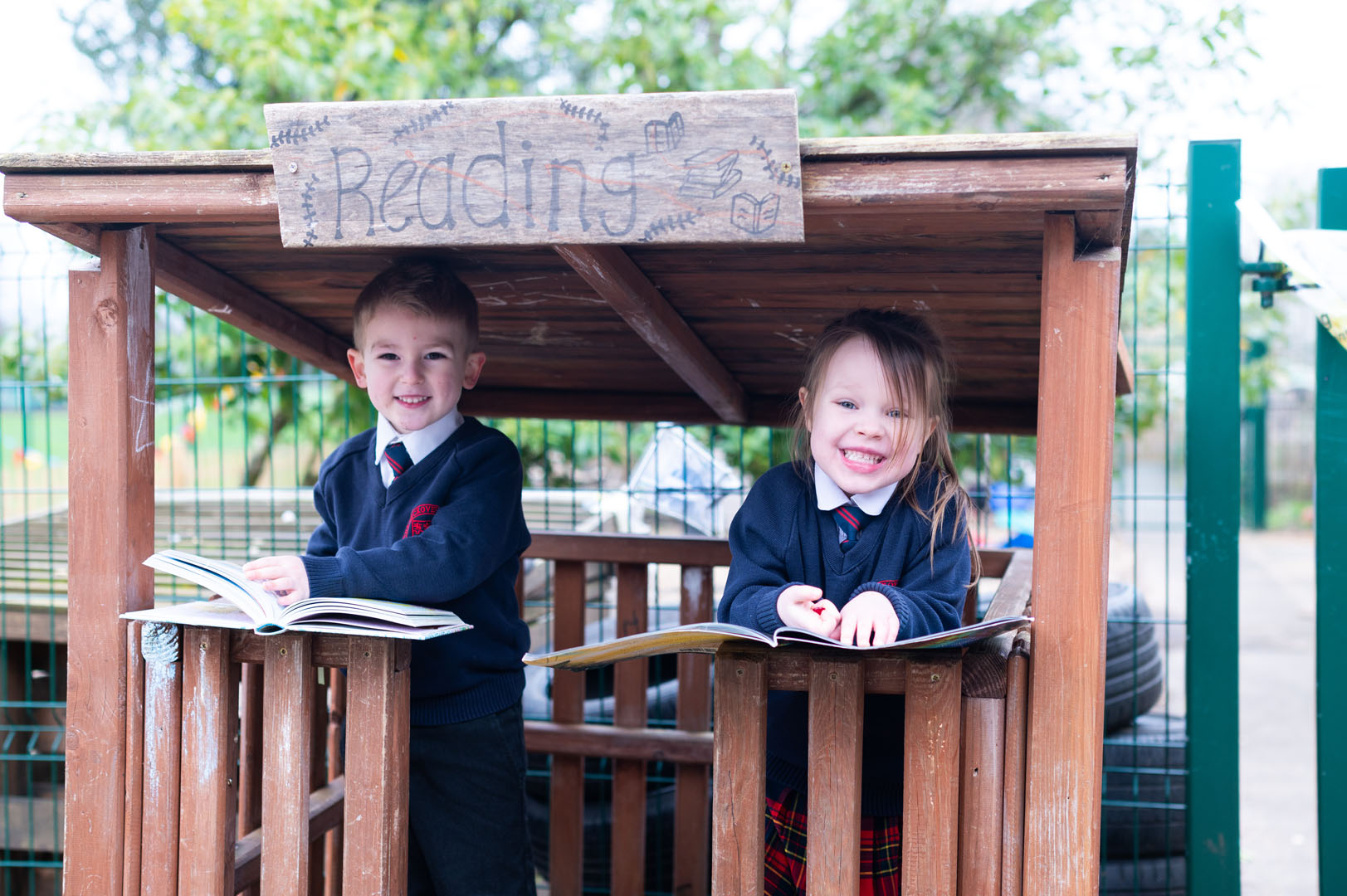Phonics and Early Reading
Early language development
We understand that the quality of talk expands vocabulary. Opportunities to expand language are planned within our curriculum throughout the day. Staff pedagogy supports active listening through the use of Kagan structures. Staff use open-ended questions and explore children's ideas. Calm, quiet learning environments are expected in order for children to be able listen.
We recognise the importance of early intervention of speech and language and therefore we assess every child when they first enter the Foundation stage using a diagnostic assessment, thus ensuring language needs are picked up early and acted upon. With support from a speech and language therapist, children and their needs are identified and strategies put in place. Targeted intervention schemes to ensure all the children's needs are met in a personalised way.

Our curriculum is designed through key texts (fiction and non-fiction), nursery rhymes and songs to inspire and engage the children from the very early stages of their education. The selection of texts mirror the cohort. Daily stories and nursery rhymes times are planned in a progressive way therefore ensuring children are exposed to a curated selection of quality texts.
Teaching of Early Reading
Phonics – Word Reading
We faithfully follow the Read Write Inc scheme for phonics. The foundations for this are laid from Nursery and continues until children are secure in phonics.
In Nursery, children focus on developing the listening and attention skills needed as the foundations for phonics through, for example, Fred Talk games, alliteration, rhythm, rhyme and environmental sounds. Children will be introduced to the mnemonics that go alongside the phonics sounds as a pre-cursor to more formal sound teaching in the summer term of Nursery.
Formal teaching of phonics begins in Reception starting with basic sounds and phonics routines, ready for assessment grouping at week 4. Reception, Year 1 and Year 2 children are grouped via Read Write Inc assessments to ensure they are receiving phonics teaching at the appropriate level.
Children receive phonics teaching until they have successfully completed the scheme and know all their sounds. This is the pre-cursor to developing reading fluency and comprehension.
Time for teaching phonics is ring-fenced. In Reception in the Autumn Term, children start with 20 minute lessons which increases to an hour as children’s stamina improves. In KS1 children receive one hour lessons. Kagan (our no hands up) strategies are used in RWI to support active listening and questioning.
The phonics lead is given dedicated time out of class to monitor and evaluate the impact of phonics teaching in every group, providing weekly coaching and mentoring for staff where a need is identified. We adopt a fluid approach to the grouping of children with on-the-spot assessment taking place as soon as it identified that a child is ready to move groups. The phonics lead is supported by a Read Write Inc consultant.
Children’s home books are matched to the phonics sound being taught in their lessons so that their continued development can be reinforced at home.